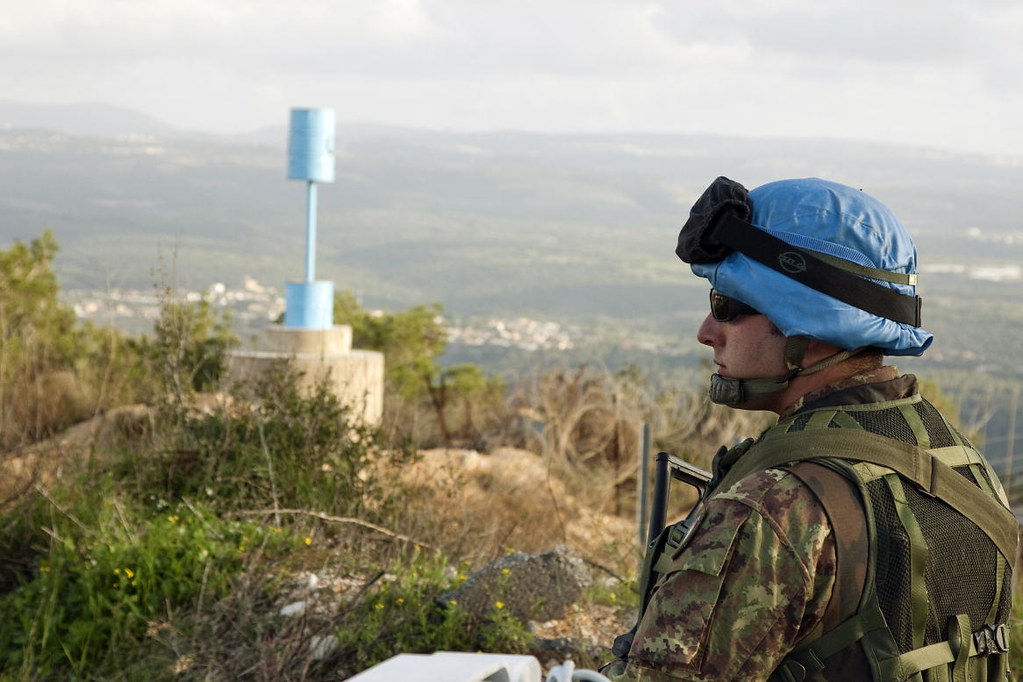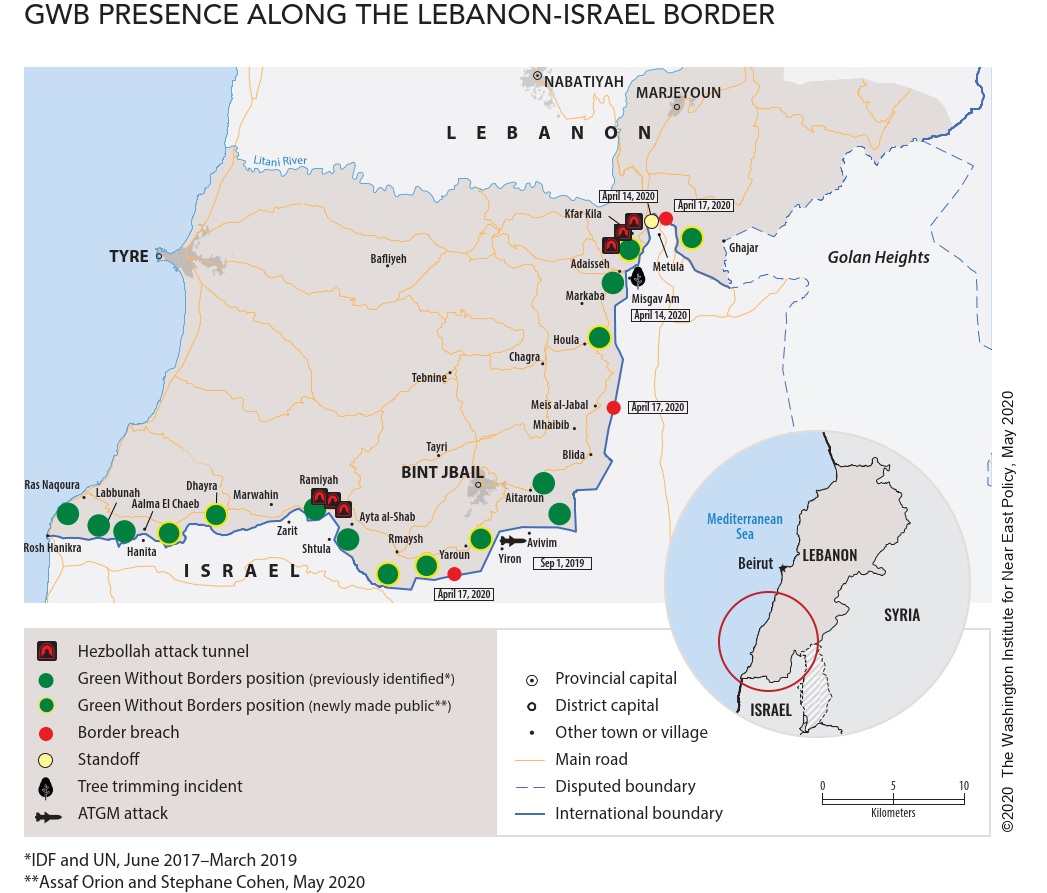FRESH AIR
UNIFIL must be reformed or replaced
September 2, 2022 | Ran Porat

The news
The mandate of the United Nations Interim Force in Lebanon (UNIFIL) was renewed on August 31 for yet another year by the UN Security Council (Resolution 2650). However, serious questions must be asked about whether this UN peacekeeping force is able to fulfil its mission – or indeed provide any real benefit at all in terms of keeping the Israel-Lebanon border quiet, especially in the wake of recent revelations from UNIFIL itself about expanded illicit, belligerent activities in southern Lebanon.
What is UNIFIL?
A UN peacekeeping force created in 1978 as a buffer between Israel and Lebanon. After the 2006 war between Iranian terrorist proxy in Lebanon, Hezbollah, and Israel, UN Security Council Resolution 1701 expanded UNIFIL’s mandate, calling for it to assist the Lebanese Armed Forces (LAF) in imposing the sovereignty of the Lebanese state in the south of the country and along the border with Israel (known as “The Blue Line”), and ensuring that “there will be no weapons without the consent of the Government of Lebanon and no authority other than that of the Government of Lebanon” in southern Lebanon.
With more than 10,000 soldiers and personnel from 48 countries and an annual budget of more than US$500 million (A$736 million), UNIFIL forces are deployed across south Lebanon with the aim of monitoring militia and military developments and movements. They routinely conduct hundreds of daily patrol and reconnaissance missions within that area and along the Blue Line using armoured vehicles, helicopters and ships. UNIFIL cooperates with the LAF and is engaged on various levels with the local population. It is also involved in coordination activities vis-à-vis the Israeli army (IDF) and periodically reports to the UN about the status of implementation of UNSCR 1701 in the areas under its jurisdiction.
UNIFIL’s inferiority vis-à-vis Hezbollah
UNIFIL suffers from an endemic weakness that prevents it from effectively performing its duty to guarantee no force other than the LAF has control over southern Lebanon. Specifically, UNIFIL has failed completely to limit the power, presence and actions of Hezbollah in that area.
Hezbollah has successfully reduced UNIFIL’s ability to perform its duties to almost zero through an ongoing campaign over many years to undermine UNIFIL’s freedom of movement and action. Hezbollah operatives, often in civilian clothes, obstruct regular UNIFIL activities, block entrances to villages and locations where weapons or militants may be hidden, and even attack UNIFIL soldiers, including a few cases which ended up causing UNIFIL casualties. When such incidents occur, LAF forces, who sometimes accompany UNIFIL in their missions, largely stand idle and do nothing while UNIFIL activities are being undermined by Hezbollah. The sad irony is that LAF enjoys support, aid and training from UNIFIL and from the US and European countries, but does nothing to curb Hezbollah – which frankly is a more capable and better equipped military force than the LAF.
As a result, since 2006, Hezbollah (as well as some smaller Palestinian militant groups operating under Hezbollah’s supervision) has bluntly and continuously breached the provisions of UNSCR 1701, as UNIFIL itself acknowledges. For example, Hezbollah has been:
- Deploying an unknown number of weapons, estimated at thousands, out of its estimated stockpile of 130,000 rockets and missiles within the civilian population in villages and open spaces in south Lebanon.
- Digging underground attack tunnels, often in close proximity to UNIFIL bases, stretching from inside Lebanon and into Israeli territories. IDF uncovered and destroyed at least six such tunnels (Operation Northern Shield, Dec. 2018).
- Stationed its elite commando force, the Radwan unit, disguised as regular citizens, along the border. Upon order, the unit is tasked with infiltrating Israel (via the tunnels, and in other ways), attacking towns and kidnapping, killing and terrorising Israelis.
- Positioning, under a cover of an alleged environmental group “Green Without Borders”, dozens of surveillance outposts and caravans along the Blue Line (see map below).
- Sending operatives to create ‘friction’ with Israeli soldiers along the border. Unfazed by UNIFIL, in 2022 the number of such Hezbollah-initiated incidents has jumped by 400%.
- Shooting rockets and launching drones at Israel or its facilities (for example, at the Karish gas rig, July 2022).
- Attacking IDF soldiers across the border with Israel, shooting rockets or planting explosives on the fence.
- Conducting unobstructed military activities, such as setting up shooting ranges in southern Lebanon.

Bottom line: reform (or replace) UNIFIL
UNIFIL needs an urgent and in-depth review and reform to strengthen it and change its strategic approach so it can finally face up to Hezbollah, or it should be replaced with a different mechanism that would be able to step up to the plate, and actually do what the international community is paying UNIFIL to do. This UN peacekeeping force has become a large yet ineffective organisation, which is unable to carry out its main mission of controlling Hezbollah’s belligerence and military dominance in south Lebanon – a direct and serious threat to Israel’s security and regional stability. Worse, by keeping UNIFIL in its current format, the international community is given the false impression that Israel-Hezbollah tensions are under control and are ‘dealt with’. The opposite is true – in its ineptitude, UNIFIL is paradoxically shielding Hezbollah and enables the terrorist organisation to increase its dangerous capabilities in Lebanon away from the world’s attention.
Dr. Ran Porat is a Research Associate at the Australia/Israel & Jewish Affairs Council (AIJAC). He is also a Research Associate at the Australian Centre for Jewish Civilisation at Monash University and a Research Fellow at the International Institute for Counter-Terrorism at the Reichman University in Herzliya.
RELATED ARTICLES

He survived Bondi. Now he’s fighting back: Arsen Ostrovsky addresses AIPAC conference

US Middle East strategy amid regional instability: Dana Stroul at the Sydney Institute





















